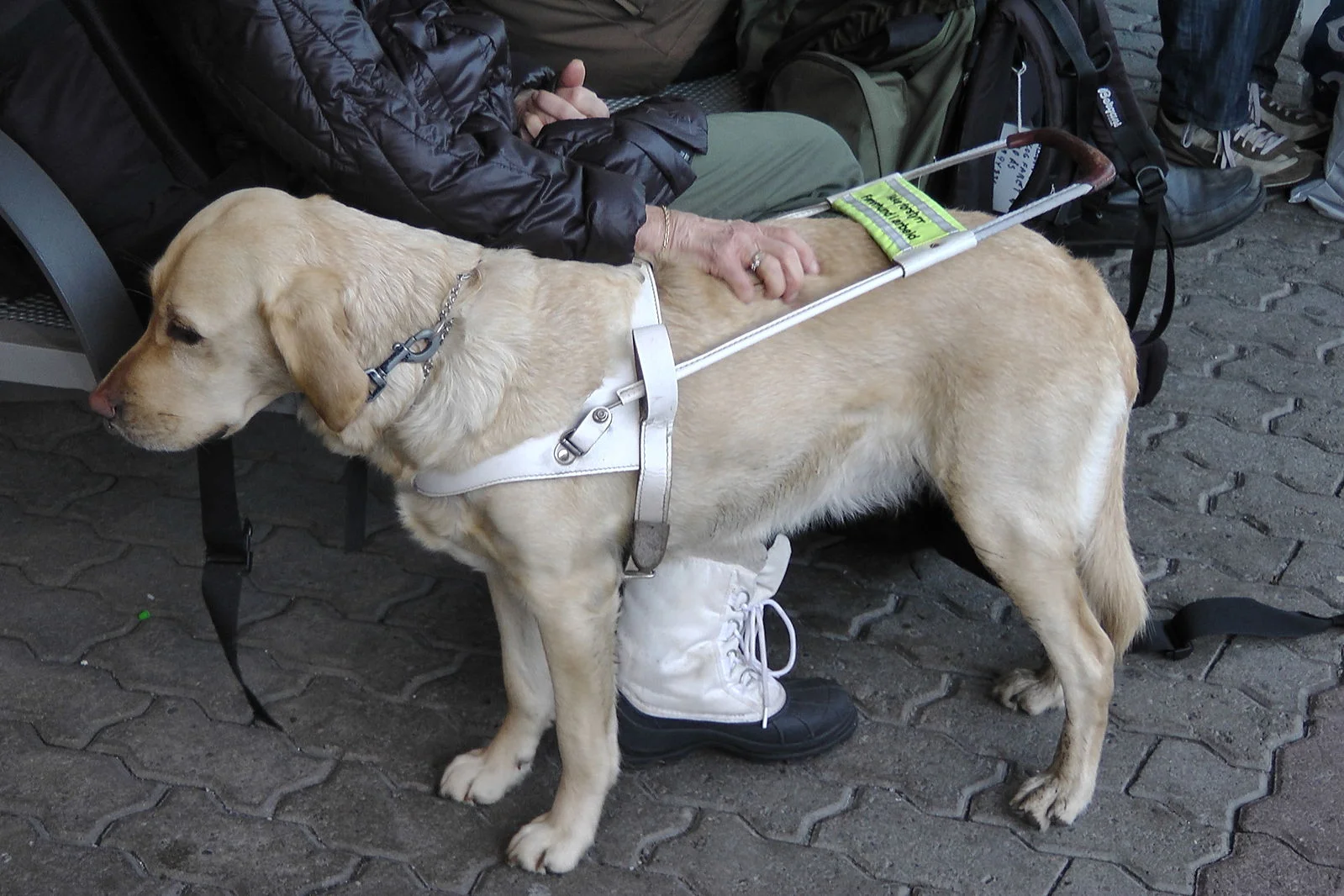Any dog trainer worth his or her salt will tell you that every dog needs a job. This is true whether or not the dog was bred for that specific job.
Having a job helps sharpen a dog’s cognitive skills, especially attention, memory and problem solving. It also helps cement the bonds between animal and human companions - especially those with medical, behavioral or emotional needs.
The work of agencies such as Guide Dogs for the Blind (GDB) and Canine Companions for Independence (CCI) is legendary. Anyone who has attended a “graduation ceremony” where a carefully trained canine and a grateful human in need of assistance are paired together can attest: there is not a dry eye in the house.
Both GDB and CCI breed their animals for the jobs at hand. Those that do not “make the cut” are reportedly adopted out to loving homes where they may find unexpected jobs. “Dagger II,” a black lab trainee with a fear of stairs, found fame in his adopted home as an artist raising cash for CCI, the agency where he was trained.
It has been a long-held belief that certain dog breeds are “more suited” to certain assistance jobs than others. Labrador retrievers, golden retrievers and German shepherds especially enjoy a stellar reputation for trainability and even-temperedness and are often a service agency’s dog of choice.
But are these the only breeds suited to be the human’s assistant? And must these dogs always be born into a carefully-monitored environment to ensure their destiny as optimal servant-companions?
“Finding, training and monitoring dogs from rescue shelters consumes a large amount of time and resources,” Molly Morelli, Dog Program Manager of Warrior Canine Connection, told the American Kennel Club. “In order to meet a large and growing number of requests [from combat veterans], we need to be as efficient as possible.” Moreover, Morelli contends, breeding service dogs allows an organization to ensure the stability of a dog’s orthopedic health and complete knowledge of the dog’s bloodline.
Some agencies are open to training rescue dogs as service companions and have widened the field of trained breeds. The Paws With A Cause (PWAC) website claims to make “every attempt to rescue dogs from animal shelters for training when qualified dogs are available.” However, information on how often this occurs is not available. PWAC offers Standard Poodles as a hypoallergenic option. “Select small breed dogs” are also available.
Other agencies believe that a shelter dog is the only choice for a service dog. Service Dogs, Inc. (SDI) “transforms dogs abandoned to animal shelters into lifelines for people living with hearing loss or mobility challenges.” Founded in 1988 by attorney Sheri Soltes, SDI custom-trains each rescued animal and client free of charge and offers lifetime follow-up. Working with the Texas Juvenile Justice Department, SDI’s Pairing Achievement With Service (PAWS) program teaches juvenile offenders positive dog training skills.
Freedom Service Dogs, Inc. in Colorado serves children and adults including veterans and active military. Rescue dogs are trained to assist clients with a wide range of conditions including autism, traumatic brain injury, spinal cord injuries, muscular dystrophy, multiple sclerosis and post-traumatic stress disorder. This agency pulls trainable dogs from shelters and rescue groups nationwide.
Nancy Katz-Triplett of The Shiloh Project in northern Virginia has worked with rescued dogs to help juvenile abuse victims, juvenile offenders and other at-risk youth for more than 20 years. “ . . . there is nothing inherently unique a purebred puppy can offer to abuse victims that a thoroughly temperament-tested adult rescue dog can’t,” she told The Dodo. “In fact, my experience strongly suggests the opposite — abandoned, hurting and abused individuals identify in a special way with dogs that have also been abandoned, mistreated and/or neglected.”
It is reasonable to assume that not every rescue dog is trainable to become a service dog. At the same time, no agency that breeds service dogs can guarantee that every dog they breed will graduate into the arms of a needy recipient. Can these breeding agencies then guarantee that every dog that doesn't make the grade gets adopted into a loving home?
One tenet in the philosophy of The Shiloh Project reads: “ . . . until there are no more homeless and abandoned companion animals, there is no such thing as a responsible breeder.”

